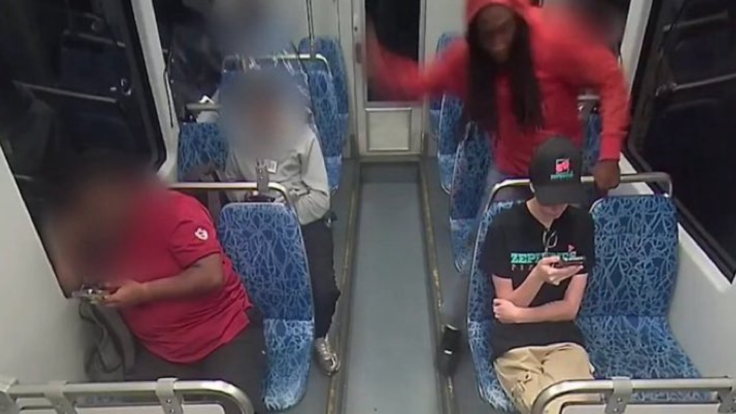Firing Squad, Electric Chair, and GPS Tags: The Shocking New Law After Iryna's Murder
If lethal injection is unavailable, executions in North Carolina may now use the electric chair or firing squad

One month after the fatal stabbing of Iryna Zarutska on Charlotte's light rail system, legislators in North Carolina approved a sweeping criminal justice bill named in her memory. The measure, known as 'Iryna's Law' (House Bill 307), introduces stricter bail rules, mandatory mental health assessments and controversial reforms to capital punishment.
Supporters argue the law is a necessary response to violent crime, while critics say it risks eroding civil liberties. The legislation abolishes cashless bail for many violent offences, expands the use of electronic monitoring for defendants awaiting trial, and revives firing squads and electric chairs as alternative methods of execution if lethal injection is blocked.
Main Provisions of Iryna's Law
The law eliminates cashless bail across a wide range of offences and creates a presumption against pre-trial release in such cases. For first-time arrests, magistrates may authorise secured bonds or impose house arrest with GPS tagging, while repeat offenders face stricter conditions.
A new category of 'violent offences' has also been established. Committing a capital felony on public transport is now an aggravating factor that can increase the likelihood of a death penalty sentence, according to the Caroline Journal.
Judges must order mental health evaluations in cases where a defendant has been involuntarily committed within the past three years, or if there is reason to suspect danger to self or others. Where assessments recommend further action, proceedings for involuntary commitment must follow.
The legislation also alters how executions may be carried out. If lethal injection is ruled unavailable, the state can use the electric chair or firing squad. Courts are required to schedule hearings within set deadlines, reducing the scope for lengthy appeal delays.
Legislative Rationale
Proponents said Iryna's killing exposed systemic weaknesses in bail and pre-trial procedures. Senate leader Phil Berger described the measure as a response to what he called lenient policies that allowed dangerous offenders back on the streets.
Senator Danny Britt, a co-sponsor, linked the reforms directly to the Charlotte incident and argued that written promises to appear in court should no longer be relied upon. A poll reported by the Carolina Journal found that nearly three-quarters of North Carolinians support greater judicial accountability when offenders commit crimes after release.
Points of Controversy
The revival of firing squads and electric chairs has been one of the most divisive elements. Supporters contend these methods are a safeguard against legal obstacles to lethal injection, while opponents say they drag the state back to outdated punishments.
Civil liberties groups warn that the presumption against release undermines the principle of innocence until proven guilty. They also criticised provisions for GPS monitoring and house arrest before trial, which they argue may conflict with constitutional protections.
Mental health advocates expressed concern about mandatory evaluations and potential forced commitments, saying these measures could be misused when mental illness overlaps with criminal accusations.
North Carolina House of Representatives just passed “Iryna’s Law” which ends cashless bail for violent offenders
— Baked Alaska (@bakedalaska) September 24, 2025
This is amazing news but I really wish we could’ve done this before innocent people were getting stabbed in the neck & killed on the train after this POS was… pic.twitter.com/SVnbqO9WY8
This WAS NOT JUST ABOUT CASHLESS BAIL-
— Marigs1 (@Marigs11126435) September 24, 2025
This is about the despicable JUDGES
This thug HAD 14 MUG SHOTS!!!!!!!!!!!!!!!
Every single Judge who set him free (AGAIN) …. has Iryna’s blood ALL OVER THEM-
🙏Rest in peace Angel pic.twitter.com/RRhnuc3P1v
It’s crazy that this law even has to exist. Cashless bail should never have been a thing
— Christina Pushaw 🐊 🇺🇸 (@ChristinaPushaw) September 23, 2025
The problem isn't bail or cashless bail, which cashless bail should not be a thing. The main issue is that judges let criminals walk away 14 TIMES and they still commit crimes
— Foxy || Voice Actor in Training (@FoxySomnia) September 24, 2025
it shows that they can not be trusted to not commit crime again when they get out
What Comes Next
Legal challenges are expected, with defence lawyers and rights groups preparing to test the law's provisions in the courts. Thousands of defendants could soon face tighter bail restrictions, including secured bonds and electronic monitoring even before trial. North Carolina's death row population may also see renewed movement in cases under the revised execution rules.
Iryna's Law represents one of the most far-reaching changes to North Carolina's justice system in recent years. Supporters say it delivers accountability and closes dangerous gaps, while critics warn it risks undermining due process. Its ultimate impact will be decided not only by lawmakers but also in the courts tasked with balancing justice against civil liberties.
© Copyright IBTimes 2025. All rights reserved.





















